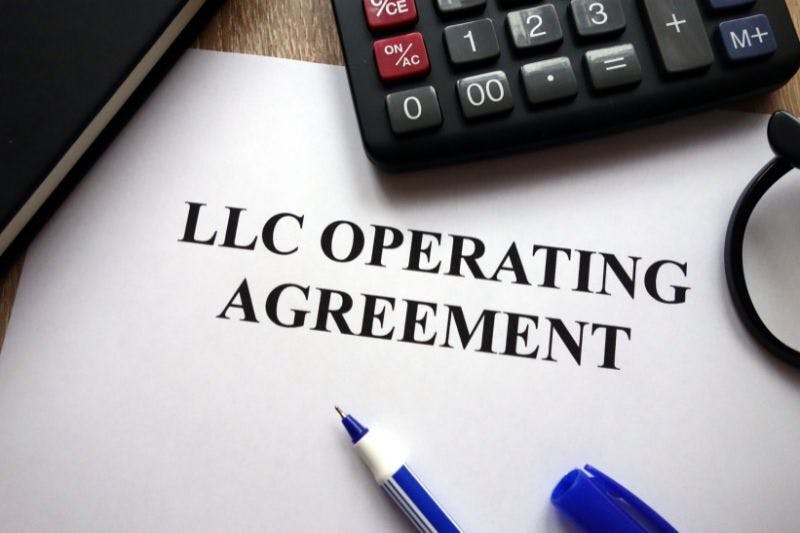
Are you starting a business in Texas? If so, then the first step you should take is to form a Texas LLC.
A Limited Liability Company will protect and separate your personal assets. It will also give your business the legitimacy it needs in the eyes of potential clients.
This guide will walk you through the processing time to get an LLC, the steps to form an LLC in Texas, and expedited options for LLC formation to get your business off to a good start. Without further ado, let’s get started.
Quick Summary
Normal approval time to get an LLC in Texas takes about 4 to 8 weeks. Add in the time it takes for your LLC to travel through the mail to and from the Secretary of State.
The state also offers an expedited filing option for mail filings, which takes about 4 to 5 business days for an additional $25 cost (separate from the LLC filing fee).
Online filing for Texas LLCs takes around 2 weeks. It’s faster because there’s no extra transit time. You can download the documents the moment they’re approved by the Secretary of State.
The processing of getting an LLC in Texas involves steps, including reserving a name, obtaining necessary licenses or permits, and filing the Certificate of Formation.
Factors that may affect processing time include name availability, method of filing (via mail or online), and the workload and efficiency of the Texas Secretary of State.

Courtesy: Canva/ Getty Images
What is a Limited Liability Company (LLC)?
An LLC is popular among small business owners for its management flexibility, tax advantages, and liability protection.
This business structure offers limited liability protection to the business owners. Members, which refers to the owners of the LLC, are protected from personal liability for acts of its other members or of the LLC itself.
It means that creditors cannot pursue the owners' personal assets (savings accounts, house, etc.) to pay business liabilities and debts.
Importance of LLCs for Businesses
Another benefit of an LLC is allowing pass-through taxation. Under US federal income tax law, pass-through taxation means the company’s revenues and expenses “pass-through” or flow through to its owners.
In other words, the company’s income is not taxed at the entity level. It is passed through to the owners and reflects on their income tax returns.
The tax due will be paid at their individual level. The major benefit of pass-through taxation, which LLC offers, is business owners avoid double taxation.
Forming an LLC in Texas: Benefits
Texas is among the top states for LLC formation or incorporation. Other popular states are Nevada, Florida, Wyoming, and Delaware.
Texas Secretary of State Support
The Texas Secretary of State (SOS) provides ample support to LLCs in the state. For instance, the officer provides LLCs with comprehensive resources and services that are specifically created to support new startups and small businesses.
The platforms provided by the Texas Secretary of State have informative guides and resources and can assist with business registration.

Courtesy: Canva/ arturmarciniecphotos
Easy to Setup and Maintain
Texas business owners can choose to form an LLC on their own (DIY method). Yet, it can be a hassle if they do not follow proper protocol. Hiring an attorney to form an LLC will reduce such issues, although this option is not always available, especially for startups with low budgets.
The benefit of engaging with a qualified lawyer, especially one experienced in business law, is they can ensure compliance with legal requirements and expedite the process.
This can result in a comprehensive and legitimate operating agreement for your Texas LLC.
Another option business owners have to rely on is LLC formation service, which is often more cost-effective while still getting expert service and advice.
Moreover, maintaining an LLC in Texas requires only filing an annual report. This requirement avoids all complexities of operating an LLC or corporation in other states.
Limited Liability Protection
Just like in other states, a Texas LLC enjoys having a “corporate veil.” It is a legal barrier that separates business assets from that of the business owners.
That way, business owners will not be financially reported to the liabilities and debts of the LLC.
State Taxation Laws
Federal law sets the business structure of an LLC. Texas adopted a law that enables limited liability companies to opt for a federal tax structure to operate as a partnership or a corporation.
Texas does not impose a state tax, and businesses benefit from such leniency. Still, businesses have to be registered with the state for Franchise Tax.
Lower Registration Fees
Texas entrepreneurs can save money during the registration process when compared to other business structures, like Limited Partnerships.
Registering an LLC in Texas costs only one filing fee to the Secretary of State, while Limited Partnerships require payment for every partner.
No Record-keeping Requirements
Record-keeping can be tedious and time-consuming, especially for business owners busy with establishing and growing their business/brand.
Corporations are often obliged to track the minutes of meetings and keep extensive records. The good news is a Texas limited liability company is not obliged to conform to that structure.
Who Can Form an LLC in Texas?
Any business or person can form an LLC in Texas. Sole proprietorships and partnerships can also form as LLCs without limit to the number of partners.
It is required that the business’ principal business office is in the state of Texas to submit a Texas LLC application.
If the principal business is found in another state, then it is called a foreign LLC, and you must file an Application for Registration of a Foreign Limited Liability Company.

Courtesy: Canva/ Getty Images
Steps to Form an LLC in Texas
1. Name Your Texas LLC Name
Choose a name for your business. This will be one of the most crucial parts of starting a business. If possible, choose a name for your Texas LLC that’s easy to remember and would easily stand out in search engine results.
Doing so will help your gain more customers, leading to more growth and revenue. Aside from choosing an LLC name, do a Texas LLC name search and domain name search too.
You can easily find online a database of all taxable entities in Texas. If the name doesn’t appear in that database, then you can be sure that your business name is unique to all.
As for the domain name search, we encourage you to conduct such a search so that your business name will be available as a URL later on when you build a website. This keeps up your branding online.
A business name is often taken using the “.com” name. You may change the top-level domain extension instead, such as .net,.co, and .biz. Even if you’re not ready to build a website for your business yet, it’s best to register it early so no one can snap it.
2. Assign a Texas Registered Agent
Next, assign a registered agent for your business. The government will contact your LLC, and your registered agent in Texas will be the one to receive legal documents, tax forms, official notices, and other correspondence or documents from the government on your LLC’s behalf.
The agent can be you, a family member, a friend, or another business member. A few states allow the use of a hired registered agent, but not Texas.
This contact person needs to have an address, which doesn’t have to be where your business is located. You can’t also opt for a P.O. box because official documents, such as subpoenas, need to be received in person.
LLC Owner Acting as Registered Agent: Downsides
While you can be your own registered agent, it comes with downsides. Among these are that you must be available daily, your information won’t be private, and you must report address changes.
3. File Texas Certificate of Formation
This next step is important because you’ll apply to the state to register your business. You’ll file your Certificate of Formation (also called the Articles of Organization) with the Texas Secretary of State.
Information to Provide About Your LLC in Texas
- Entity name and type - This is where you put your company name, followed by LLC abbreviation, the words “limited liability company,” or either.
- Governing authority - It's where you indicate the management method you will use in your LLC. It can be “manager-managed,” meaning the company will be governed by a hired or appointed manager. It may also be “member-managed,” meaning LLC owners will run the business.
- Registered agent and registered office - Put here whether your registered agent is an individual or business and include their name and address.
- Purpose - It indicates your LLC’s reason for being. It can be something general, such as “any and all lawful purposes,” or you can be specific.
- Initial mailing address - Beginning in 2022, Texas requires LLC applicants to provide an initial mailing address as it will be where the Comptroller of Public Accounts will send correspondence and tax information to your business. It can be a street address or a post office box.
- Duration - An LLC exists perpetually in Texas. The exception to this rule is when you say otherwise in this section of your Certificate of Formation.
- Supplemental provisions/ information - It’s where you can list added provisions, although most people leave this part blank unless the lawyer suggests adding other provisions.
- Organizer - This is an area of the form where you put the LLC organizer. It refers to the person who is filing the papers or completing the form for the LLC. They don’t have to be a member of the LLC, although they usually are. It’s enough that the organizer is authorized by the business owner to file the paperwork and is at least 18 years old.
- Effectiveness of filing - It indicates when the LLC will go into effect once approved. Many opt it to be as soon as filed by the Secretary of State, yet you still have to provide for other options.
- Execution - To verify that all the details you entered in the form are correct and that it has the consent of the LLC registered agent, you put in the date and signature in the form.
All the information you put in the Certificate of Formation will be public record. Once approved, your LLC will be official. The approval process usually takes 10 to 12 business days for online filing.

Courtesy: Canva/ Getty Images
4. Sign Your Texas LLC Operating Agreement
After filing your Certificate of Formation, the next task of Texas LLCs is to complete their Operating Agreement.
An LLC Operating Agreement is governing agreement that outlines the inner workings of your company’s structure. Liken this paper to a prenuptial agreement, although less expensive and much easier. It will protect the interests of the parties concerned in case of future difficulties.
You may want to include the following in your Texas LLC Operating Agreement:
Management and Voting - You can stipulate how you want the LLC to be managed. For instance, you want some LLC members to have more voting powers.
Ownership - Texas state laws do not require LLC owners or members to divide the company's ownership evenly. If that’s the case, you may agree that some get to have more than others.
Organization - It discusses the business structure and members of the company, whether it is a single-member, series, limited partnership, or multi-member LLC.
Capital Contributions detail the initial and subsequent capital contributions of members.
Membership Changes outline how members can be added and removed from the LLC.
Distributions - This is where you specify the percentage that each member gets in the profit. You may indicate here that the LLC’s profit is divided evenly.
Taxes - You can choose how you want the LLC to be taxed. Is it by a partnership or sole proprietorship by default? You even have the option to be taxed as a C or S corporation.
Dissolution details the plan if the LLC members decide to terminate the company.
Related: I Just Moved From California To Texas, What Does That Mean For Taxes?
What if I’m the only owner of the LLC?
Operating agreements offer benefits even to single-member LLCs. Future business partners, potential investors, and others may want to see your operating agreement.
Some banks won’t allow you to open a business account without the agreement. Moreover, having an operating agreement will show that you and the business are separate entities in case you end up in court. Thus, you have better personal asset protection.
Lastly, your operating agreement details what you want to happen to the business if you become incapacitated or pass away.
It could detail whether the LLC will be immediately dissolved and the assets will be distributed to the beneficiaries, or there will be a successor, so the company can continue to exist.
5. Get an EIN
The next step to form an LLC is to get an Employee Identification Number or the Federal Tax Identification Number. This is essentially like a social security number of the business. The Internal Revenue Service issues EINs and uses it to rack your LLC’s tax reporting.
EINs are useful for:
Hiring employees
Opening a business bank account or credit card
Separating your personal identity from the LLC
Tax purposes
Visit the EIN Assistant, fill out the form, and enter either your Individual Taxpayer Identification Number or personal Social Security Number.
Texas Taxpayer Number
Once your LLC is approved, you will usually receive a Franchise Tax Responsibility Letter (Form 05-280) from the Texas Comptroller of Public Accounts after two or three weeks.
This letter tells you about the tax you pay for the “privilege of doing business” in Texas (or more states later). It’s an 11-digit Taxpayer number that you can use for your state taxes.
6. Open an LLC Bank Account
The last formation step for your business is to open an LLC bank account. Having separate business and personal accounts is important to sort out your finances, especially during tax time easily.
By doing this step, you can avoid comingling funds that make tax preparation more difficult.

Courtesy: Canva/GettyImages
Timeline for LLC Formation in Texas
Mail Filings
So, how long does it take to get an LLC in Texas? The average processing period starts when you file your Texas Certificate of Formation with the Secretary of State. Approvals of mail filings take about 4 to 8 weeks, plus mail time.
By mail time, it means the time it takes for your filing to travel through the mail to and from the Secretary of State.
Such a timeline translates to approximately one to two months. It is recommended to plan accordingly for a smooth experience. Factor in the mailing duration as you wait for the approval of your LLC filing.
Online Filings With SOSDirect or SOSUpload
Online filing for Texas LLCs takes around 2 weeks. It’s faster because there’s no extra transit time. You can download the documents the moment they’re approved by the Secretary of State.
Texas has two different online filing systems, and their approval time slightly differs. Approvals for online filings through SOSDirect take 10 to 12 business days, while approvals for filings through SOSUpload take 13 to 15 business days.
Online filings for Texas LLCs are approved in a week or two. Thus, there’s no need for an expedited filing option. But there is such an option for mail filings.
Expedited Processing for LLC Formation
The state also offers an expedited filing option for mail filings, which takes about 4 to 5 business days for an additional $25 cost.
Factors That May Affect Processing Time
Business Structure
The complexity of your business structure affects the time it takes to form an LLC. For instance, additional legal requirements and documentation may be required if it has an intricate ownership arrangement, complex management structures, and several subsidiaries.
The preparation and gathering of these documents take longer, lengthening the overall LLC formation time.
Completeness and Accuracy of Submitted Documents
Having a complete and accurate document, including the Articles of Organization, Certification of Formation, and other required attachments, can speed up the processing time.
Name Availability
The availability of your desired LLC name, reservation, and confirmation also affects processing time.
Texas typically takes 5 to 7 business days to process when reserving a name for LLC. Once the LLC name is reserved, it will be valid for 120 days, giving you sufficient time to file the necessary documents and proceed with the formation process.
If the desired LLC name is not available, you can opt for an alternative name. Still, making a name reservation is the best option. Conducting a name search ahead of the application likewise avoids potential delays.
Method of LLC Filing
The method used in LLC filing significantly affects the processing time. Online filing is faster than paper filing, ensuring fast approval and a short overall processing timeline.
Timely Actions and Responses By The LLC Members
The timely actions and responses by the LLC members greatly impact the formation timeline. Timely submission of required signatures and information, as well as efficient communication, help expedite the process.
Slow response time and delays caused by a member can lengthen the time it takes to form an LLC.
Seasonal Variations and Backlog at the Texas Secretary of State
During busy seasons or peak periods, like tax season or the end of the year, there may be a higher volume of LLC filings that results in longer processing times.
Moreover, the backlog and workload at the Texas Secretary of State’s office will affect the overall processing timeline.

If you need help with tax filings, bookkeeping tasks and financial assessments, check out Hall Accounting Company. Our experienced team provides custom accounting solutions to keep your hands off the books and eyes on the future.
Engaging professional services, including accounting and legal, have an effect on the LLC formation timeline.
Working with professionals experienced in LLC formation assures the accuracy of legal paperwork and compliance with state laws. The responsiveness and availability of these professionals likewise affect the overall timeline.
Importance of Accounting Services for LLCs in Texas
When running an LLC, you have to manage different aspects of business operations to increase your sales.
Devoting your time to these parts of your business is important. However, you may need to pay more attention to your LLC’s financial health. Thus, it is worth hiring an experienced accounting firm in Texas.
They will help manage your LLC’s financial records, organize your accounting books, and eventually help you attain a positive cash flow.
Final Thoughts on Texas LLC Formation
The bottom line is that you and other aspiring business owners can start the process of forming your LLC. The overall timeline to get an LLC in Texas takes only about 4 to 8 weeks, plus mail time.
And as long as you plan ahead and prepare, you can be more successful with your short-term business goals and long-term ones.
Further, having the right team, such as a Houston CPA firm, to help you with Texas LLC formation goes a long way in saving money and time.